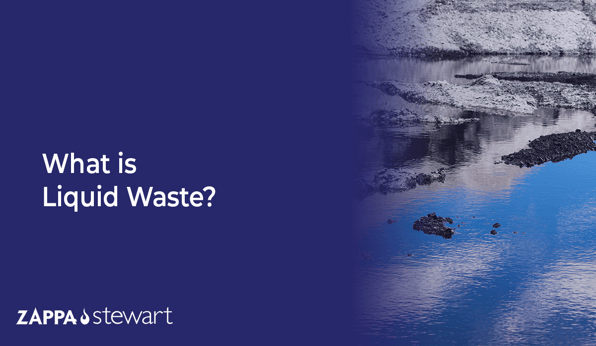Unknown Facts About Reclaim Waste
Table of ContentsThe 9-Second Trick For Reclaim WasteReclaim Waste - TruthsMore About Reclaim WasteThe Best Strategy To Use For Reclaim WasteReclaim Waste - Questions
Domestic sewage waste refers to the waste and items from a domestic septic container. The proper administration and disposal of residential sewage waste require liquid waste to be transferred to a sewer treatment plant where the appropriate approaches and tools are used to purify and dispose of waste.
Industrial waste often includes possible hazards, such as combustible products or a mixture of liquid and strong waste products, and requires an advanced and thorough disposal process. The disposal of business waste typically includes the filtering of waste prior to transport to guarantee risk-free and appropriate disposal. Industrial waste is created from results and drainage of industrial procedures and manufacturing.
This type of waste can not utilize the very same sewer monitoring transportation or processes as septic or commercial liquids. The industrial waste administration process requires the assessment and screening of fluid waste prior to it goes through the disposal procedure (industrial wastewater treatment). Drainage waste is the fluid waste that originates from drainage and excess stormwater in very booming locations or cities
Drainage waste can trigger contamination and flooding otherwise managed appropriately. Find out more regarding drain cleaning and waste management. Guaranteeing proper waste management can prevent calamities and decrease ecological injury. Both people in property settings and professionals in industrial or production sectors can gain from comprehending the processes and regulations of liquid waste administration.
Everything about Reclaim Waste
Contact PROS Solutions today to discover our waste monitoring and disposal solutions and the appropriate methods to care for the liquid waste you generate.
(https://reclaim-waste.jimdosite.com/)Do you understand what happens to your water when you disengage, flush the toilet or drain the washing equipment? No? Well, it deserves knowing. This supposed 'wastewater' is not only a vital source however, after therapy, will be launched to our land, waterways or the sea. Utilized water from toilets, showers, bathrooms, kitchen sinks, washings and industrial procedures is called wastewater.

water used to cool down machinery or clean plant and tools). Stormwater, a form of wastewater, is drainage that flows from agricultural and metropolitan locations such as roofs, parks, yards, roads, courses and seamless gutters into stormwater drains pipes, after rain. Stormwater moves neglected straight to local creeks or rivers, ultimately getting to the ocean.
Some Of Reclaim Waste
In Queensland, a lot of wastewater is dealt with at sewage treatment plants. Wastewater is transferred from domestic or commercial websites via a system of drains and pump terminals, referred to as sewage reticulation, to a sewage treatment plant. City governments construct, maintain and operate most sewage therapy plants. Operators are licensed under the Environmental Security Act 1994 to discharge treated wastewater at an acceptable ecological requirement into rivers.
The Division of Natural Resources suggests city governments about managing, operating and maintaining sewage systems and treatment plants. In unsewered areas, regional federal governments might need homeowners to set up private or family sewage therapy systems to deal with domestic wastewater from toilets, kitchens, bathrooms and washings. The Department of Natural Resources authorizes making use of home systems when they are proven to be reliable.
In some brand-new class, therapy of some stormwater to eliminate clutter, sand and gravel has actually begun making use of gross contaminant catches. Wastewater treatment takes place in four phases: Gets rid of solid issue.
Utilizes little living microorganisms recognizes as micro-organisms to break down and get rid of remaining dissolved wastes and fine bits. Micro-organisms and wastes are included in the sludge.
The 10-Minute Rule for Reclaim Waste
Nutrient elimination is not available in all sewer treatment plants since it requires expensive specialized tools. It is coming to be more usual in Queensland. Clear fluid effluent produced after treatment might still contain disease-causing micro-organisms. If this effluent is launched right into rivers such as rivers or the sea, the micro-organisms will at some point pass away out.

This normally suggests wastewater has actually to be dealt with or pollutants eliminated before it can be released to waterways. A lot of wastewater moves right into the sewage system. Under the Act, neighborhood federal governments provide approvals and permits for eco appropriate activities (Periods) including wastewater releases that could have a neighborhood effect. The department provides approvals and permits to ERAs including wastewater releases that could have a regional or statewide effect.
How Reclaim Waste can Save You Time, Stress, and Money.
Tracking provides factual information concerning water high quality and can right here confirm that licence conditions are being fulfilled. The information acquired with tracking supplies the basis for making water high quality choices.